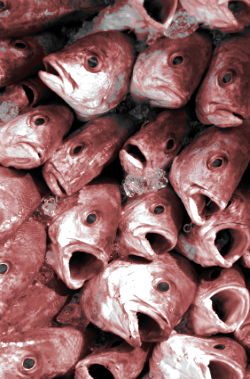Fishing risk surveyed
 A new review finds coastal fishing and farming are at serious risk from climate change.
A new review finds coastal fishing and farming are at serious risk from climate change.
Coastal communities could face losses of food from both fisheries and agriculture as a result of climate change, according to the study of five Indo-Pacific countries.
Climate change is expected to have impacts for food production sectors, and the tropics are likely to see impacts for both agriculture and fisheries. This could create a double burden for rural coastal communities that are highly dependent on both sectors.
Previous research has modelled how agriculture and fisheries may respond to climate change globally, but these large-scale predictions may bear little relevance to the local scales at which the socioeconomic impacts occur.
Now, researchers have investigated the potential impacts of climate change on agriculture and fisheries for 72 coastal communities across Indonesia, Madagascar, Papua New Guinea, the Philippines, and Tanzania.
The authors integrated socioeconomic surveys from over 3,000 households with model projections of losses to crop yield and fisheries catch under a high emissions scenario (SSP 5–8.5) and a low emissions scenario (SSP 1–2.6).
They report that, although different communities vary in how vulnerable they are both within and across countries, the communities with lower socioeconomic status are particularly exposed to severe impacts.
The authors indicate that the potential losses are higher in the fisheries sector than agriculture, but many of the surveyed communities will face substantial losses to both agriculture and fisheries simultaneously, under a high emissions scenario.
Under a low emissions scenario, the authors indicate that fewer communities will experience losses to both agriculture and fisheries.
This underscores the benefits of climate change mitigation, they conclude.
The study is accessible here.








 Print
Print